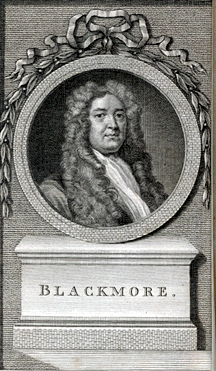Book I, opening lines
Creation (1712)
Richard Blackmore: Frases en inglés
Preface to Prince Arthur (1695)
"An Essay upon False Vertue", p. 263
Essays Upon Several Subjects (1716)
"An Essay upon False Vertue", p. 262
Essays Upon Several Subjects (1716)
Essay upon Wit http://www.gutenberg.org/files/13484/13484-8.txt (1711)
Preface to King Arthur http://d.lib.rochester.edu/camelot/text/blackmore-king-arthur-I (1697)
